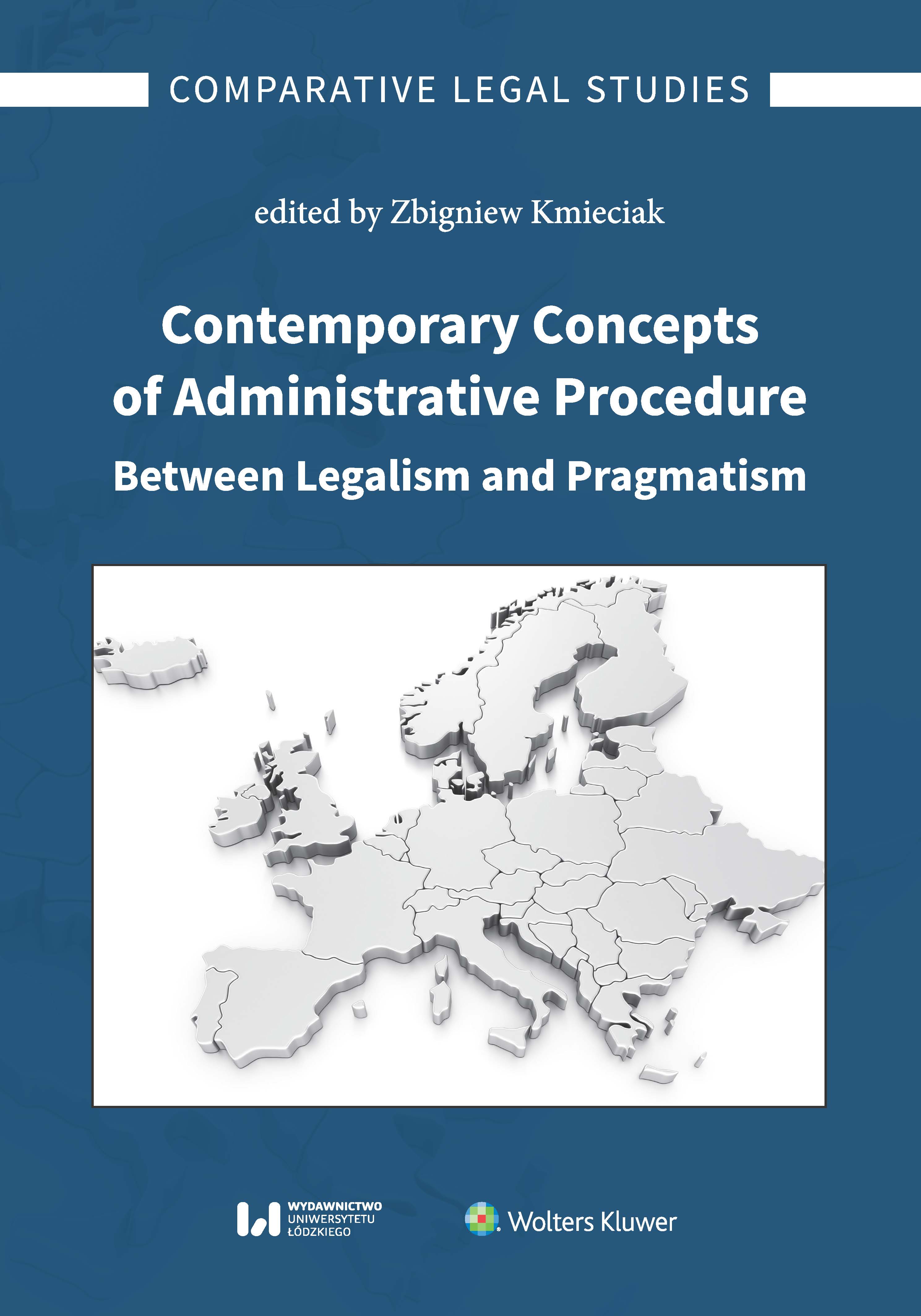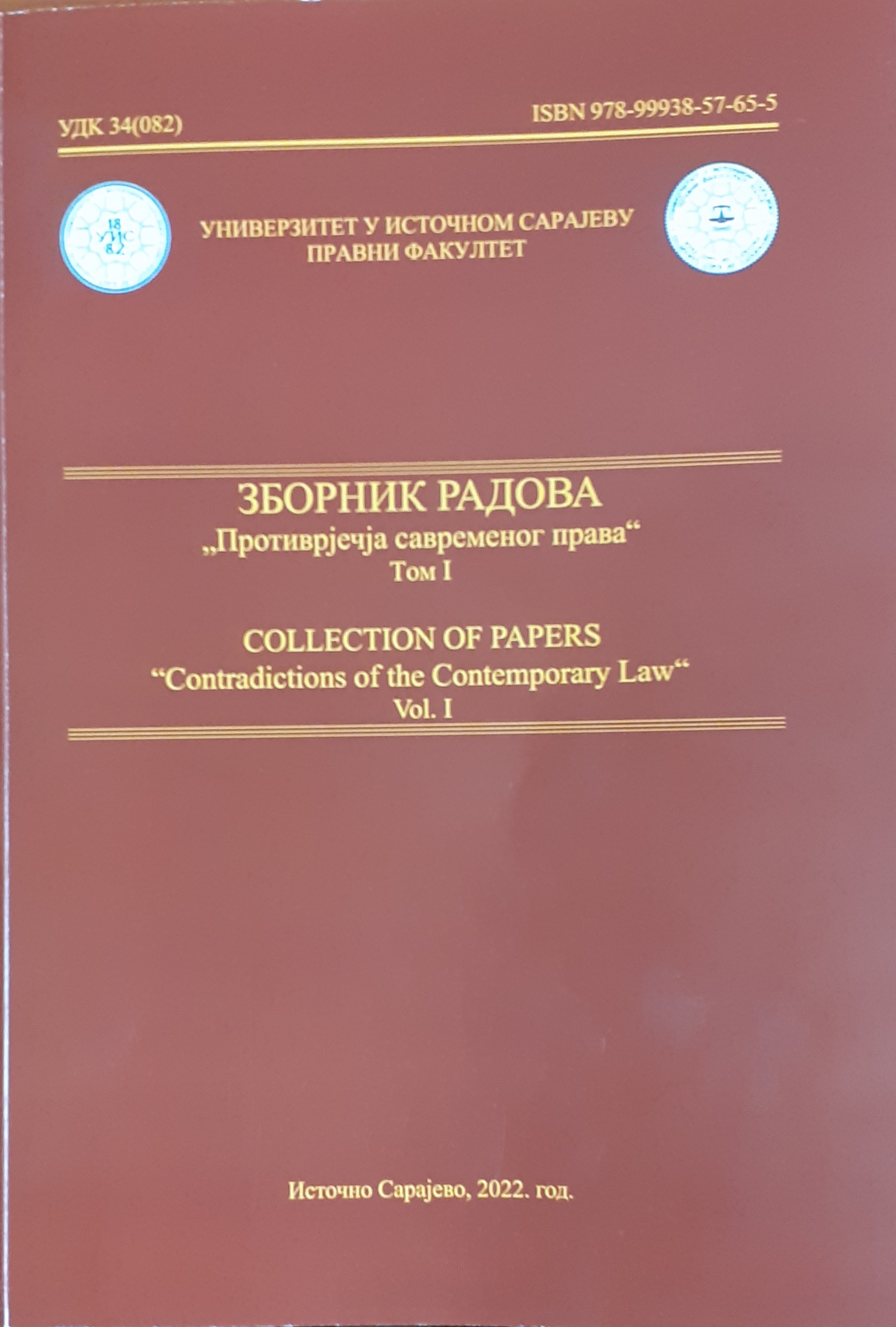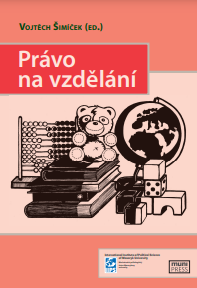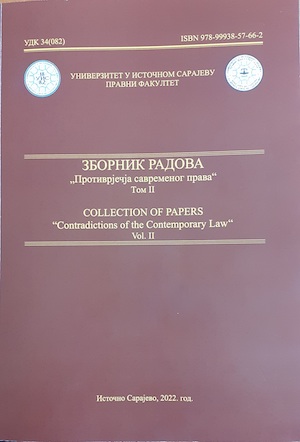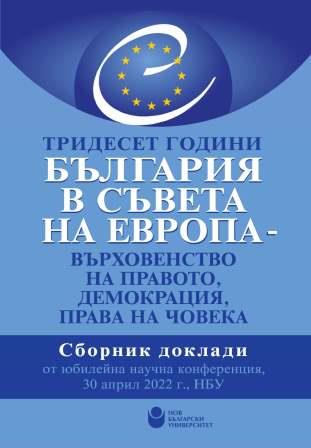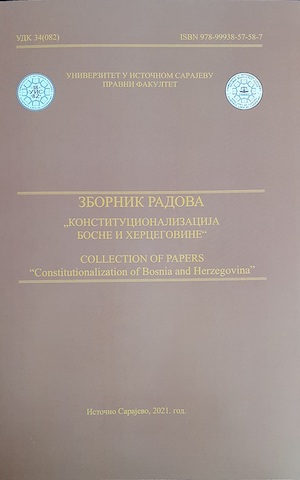
Људска права у Босни и Херцеговини (кроз призму односа Устава Босне и Херцеговине и Европске конвенције за заштиту људских права и основних слобода)
The European Convention on Human Rights occupies a significant place in the legal system of Bosnia and Herzegovina. Its significance and legal force in the internal order of Bosnia and Herzegovina derive from the Constitution itself. However, the constitutional rules are not clearly defined. The main dilemma that the paper points out concerns the rank that the European Convention on Human Rights has in the hierarchy of legal acts in the legal order of Bosnia and Herzegovina. The dilemma is mainly reduced to the question whether the Convention has a supra-constitutional character, or it is an act of greater legal force than the law, but less than the Constitution. This issue, which is extremely important, has so far received insufficient attention in scientific circles. Although it is unique in Europe in terms of its solution, numerous studies on the status of the European Convention in the internal legal orders of the signatory states do not pay enough attention to the solution in Bosnia and Herzegovina. Therefore, emphasizing the importance of the Convention in the internal order of Bosnia and Herzegovina, the author seeks to contribute to resolving the controversy over the interpretation of the Constitution of Bosnia and Herzegovina and its relationship to the Convention. Analyzing the disputable parts of the Bosnia and Herzegovina Constitution, and the arguments of two groups of theorists who observe the relationship between the Convention and the Constitution exclusively from the internal, constitutional aspect, the author concludes that when one tries to find the answer to this question it is necessary to consider the effects of the ratification. Our goal is to show that on the line between the two extremes to which the domestic theory is prone, there is still a solution that is closest to the Austrian model, and according to which the European Convention in the domestic legal space of Bosnia and Herzegovina actually has the rank of a constitution.
More...
